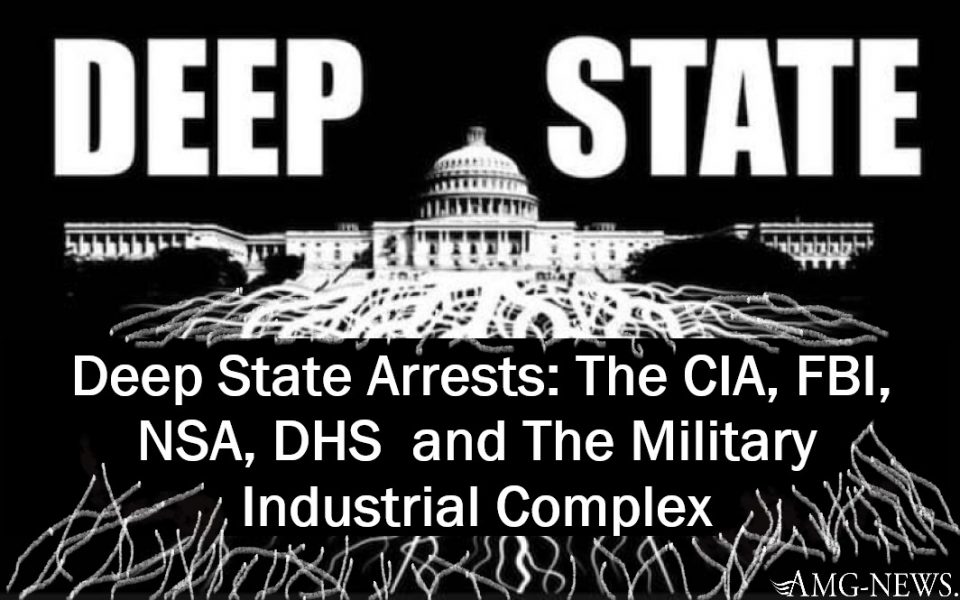The Hidden Horrors of the CIA! Dark Secrets Exposed by Former Operative Kevin Shipp VIDEO INTERVIEW
Ready to uncover the truth? Sick of the lies? Join our Telegram Channel now. It’s time for the real story! My gratitude to all my readers!
Former CIA officer Kevin Shipp exposes the agency’s covert operations, corruption, and retaliation in a revealing account that unveils the truth behind government secrecy and media manipulation.
In a jaw-dropping revelation on the Canda Show, former CIA officer Kevin Shipp has pulled back the curtain on one of the most secretive organizations in the world. From his unorthodox recruitment and career as a CIA officer to the terrifying retaliation he faced after exposing internal corruption, Shipp’s journey is a shocking testament to the hidden and morally fraught world of intelligence. His whistleblower experiences reveal a web of deception, manipulation, and systemic failures within the CIA, providing a critical look at an agency that often operates outside the public’s scrutiny. Buckle up: this exposé delves into Shipp’s firsthand experiences with the CIA’s veiled operations and uncovers truths that most agencies would prefer to keep in the dark.
Kevin Shipp’s Path to the CIA: A Journey of Twists and Secrets
Kevin Shipp never dreamed of joining the CIA. At age 27, he was working as a biologist when a conversation with a friend who was already in the agency changed his life forever. Shipp wasn’t a squeaky-clean candidate. He had a troubled past, marked by a history of substance use during his college years. Yet, Shipp’s honesty during the grueling interview process would prove pivotal.
The CIA’s Rigorous Recruitment Process
The recruitment process wasn’t just another job interview. It was an all-consuming ordeal that spanned six intense months, as Shipp’s life and background were dissected. Background checks weren’t just surface-level; FBI agents were dispatched to speak to his college friends, combing through his past with a fine-tooth comb. Shipp was put through rounds of nerve-wracking polygraph tests where any falsehood could end his chances on the spot. However, it was his unflinching honesty that impressed CIA recruiters. He confessed his past drug and alcohol use, giving them a glimpse into his humanity—and they accepted him. Shipp’s path to the CIA was sealed, launching him into an entirely new world of high-stakes intelligence work.
Life in the Shadows: Shipp’s Role as a CIA Operative
After his initial training, Shipp found himself thrust into roles most people only see in movies. His first assignment involved security and protective duties for high-profile individuals, including the then-CIA Director William Casey. But this was no ordinary “security job.” Shipp’s responsibilities meant he was constantly on edge, primed for life-threatening scenarios where his skills could mean the difference between life and death.
Protective Detail and Dangerous Encounters
Shipp’s duties went beyond the standard guard work. He underwent rigorous training that equipped him for high-stakes encounters overseas. He and his team were taught tactical shooting, counter-terrorism driving, and even hostage negotiation techniques. Shipp often found himself confronting threats from terrorist organizations and shadowy adversaries who posed an immediate risk. It wasn’t just his life on the line; he was responsible for the safety of some of the most critical figures in national security. These operations were cloaked in secrecy, each one more intense than the last, shaping Shipp into a hardened CIA operative. But as he gained deeper access to the agency’s underbelly, he began witnessing disturbing ethical compromises that shook his moral foundation.
A Glimpse into the CIA’s Moral Grey Zones
With his heightened clearance, Shipp was pulled deeper into the CIA’s complex and, at times, morally ambiguous operations. It wasn’t just about gathering intelligence or defending the nation; there was manipulation, deceit, and morally murky waters that began to wear on Shipp’s conscience.
The Ethical Price of Intelligence Work
One particular overseas mission served as the turning point for Shipp. He found himself at odds with the duplicity required by his role. While gathering crucial information often demanded tactics that brushed against the boundaries of ethics, Shipp felt his principles being compromised. He saw the potential consequences of these tactics firsthand and could no longer silence the inner conflict within himself. This conflict would ultimately drive him to become a whistleblower, an act that would plunge him into a battle against the very agency he once served.
Shipp’s Battle with the CIA: A Whistleblower’s Nightmare
Shipp had uncovered a critical vulnerability within the CIA that threatened the safety of covert agents worldwide. Specifically, he identified a flaw in the Visa sections of U.S. embassies that could expose covert agents to hostile actors. But his efforts to report this issue met resistance at every turn. Despite Shipp’s insistence, the CIA dismissed his findings, leading him to escalate his concerns to the Department of State.
CIA Intimidation and Suppression Tactics
Shipp’s whistleblowing efforts triggered a series of retaliatory actions from the CIA. The agency went to great lengths to silence him, from issuing threats to attempting to discredit his character. Each time Shipp raised the alarm, the agency’s intimidation tactics grew more severe. They attempted to suppress his reports, ignoring his concerns for the safety of fellow operatives. Eventually, the Department of State formally rebuked the CIA, condemning their negligence in endangering covert agents. But by then, Shipp’s life had been irrevocably altered, and he had entered a dangerous new chapter.
The CIA’s Revenge: Personal Retaliation Against Shipp and His Family
In a shocking turn of events, the CIA retaliated against Shipp by assigning him and his family to a residence that was known to be contaminated. This toxic environment wreaked havoc on Shipp’s family, leading to severe health complications, including immune system deterioration and dementia-like symptoms in his wife.
Health Consequences and Home Intrusions
Shipp’s family suffered immensely due to the contamination. Their health began to crumble, and the extent of the physical damage became undeniable. Shipp quickly recognized this was no mere oversight; it was a calculated retaliation for his whistleblowing actions. Beyond the health hazards, he experienced a series of unsettling home break-ins, clear signs that the agency was sending him a message. Shipp, however, didn’t back down. He documented everything, refusing to be intimidated by the agency he once served.
A Fight for Transparency: Shipp’s Quest to Reveal the Truth
Undeterred, Shipp poured his heart into a book, “From the Company of Shadows.” The CIA, however, wasn’t going to let his story be told easily. They attempted to redact crucial sections, delayed publication, and threatened repercussions.
Publishing Obstacles and Perseverance
Shipp faced monumental challenges in getting his book out to the public. Despite repeated CIA efforts to censor it, he refused to bow to the agency’s pressure. Partnering with Kent Heken Lively, they found a willing publisher, Sky Horse, and pushed the book through. Against the odds, Shipp’s revelations saw the light of day, providing the public with a rare glimpse into the CIA’s covert operations and questionable practices.
Operation Mockingbird: The CIA’s Stranglehold on Media
One of Shipp’s most chilling insights is the CIA’s manipulative relationship with mainstream media, specifically through a covert operation known as Operation Mockingbird. This initiative, which began during the Cold War, saw the CIA placing journalists on their payroll to control the narrative, influence public opinion, and suppress critical information.
The Shadow of Media Manipulation
Through Operation Mockingbird, the CIA’s influence permeated media channels. This tactic went beyond simple public relations; it was about shaping public consciousness and steering the narrative to protect CIA interests. This media infiltration has long outlived the Cold War, and its legacy raises concerns about the sources of information we trust today. Shipp’s insights expose the disturbing influence of intelligence agencies on media outlets, fueling a need for transparency and independent journalism.
Rethinking Historical Events: Shipp’s Take on Major Incidents
Shipp’s career with the CIA has given him a unique perspective on history, particularly on events that shaped American politics and foreign policy. He suggests that some of these incidents may have been manipulated to further governmental agendas.
Pearl Harbor and 9/11: Hidden Agendas?
Shipp argues that there were covert motivations behind events like the attack on Pearl Harbor and the September 11 attacks. The foreknowledge of these events raises chilling questions: Were these tragedies used as tools to justify war, manipulate public sentiment, and increase government control? Shipp doesn’t claim to have all the answers but calls for a re-examination of these critical events to understand the full scope of governmental influence and control.
Empowering the Public Through Transparency and Awareness
Shipp’s story is a rallying cry for transparency. His experiences serve as a reminder of the dangers of unchecked government power and the critical need for an informed public.
The Role of Independent Media in Exposing the Truth
As mainstream media is increasingly scrutinized, the rise of independent journalism offers a beacon of hope. Through alternative platforms, whistleblowers like Shipp can bypass traditional channels, sharing insights that would otherwise remain hidden. Shipp encourages the public to be vigilant, skeptical, and informed, as knowledge is the ultimate defense against corruption.
Shipp’s Legacy: Supporting Whistleblowers and Championing Truth
Kevin Shipp’s transformation from CIA officer to whistleblower underscores a powerful message: the pursuit of truth is worth the cost. Shipp’s journey highlights the need for support systems for whistleblowers, whose courage shines a light on the dark recesses of institutional corruption.
Building a Culture of Accountability and Integrity
Shipp’s story is a call to action, urging society to recognize and protect whistleblowers who risk everything to expose the truth. Through public support, advocacy, and legislative action, we can foster a culture that values integrity over secrecy. The impact of Shipp’s revelations serves as a testament to the power of transparency in the fight against corruption.
Conclusion: Shipp’s Exposé as a Cautionary Tale and Call to Action
Kevin Shipp’s story offers more than a glimpse into the CIA’s shadowy world; it is a beacon for those willing to question, investigate, and stand against systemic corruption. His life illustrates the cost of truth and the courage it takes to defy powerful institutions. Shipp’s revelations are not just a warning—they are an invitation for all of us to demand transparency, hold our institutions accountable, and seek out the truth no matter how unsettling it may be. As we face an increasingly complex geopolitical landscape, Shipp’s journey reminds us that the fight for truth is never over.
Our mission to champion democracy, freedom of speech, and patriotic values relies on the support of dedicated individuals like you. Your contribution is vital in helping us provide insightful analysis, uncover pressing issues, and inspire positive change in our nation.
Join us in our commitment to making a difference. Every donation counts and empowers us to continue our work in advocating for the values we hold dear.
Thank you for being a crucial part of our journey.

I’m a 33-year-old writer and the founder of World Reports Today. Driven by the timeless principles of democracy and freedom of speech, I use my platform and my writing to amplify the voices of those who uphold these ideals and to spark meaningful conversations about the issues that truly matter.






